|
Home
Up
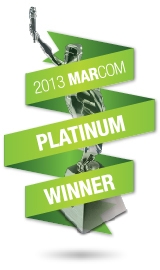
Marcom Award
2007-2008-2009
2010-2011-2012
2013-2014

Videographer Award
2007-2008-2009
2010-2013-2015
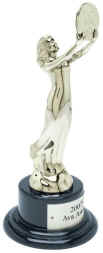
AVA Award Winner
2007-2008-2009
2010-2011-2012
2013-2014-2015

2008-2009-2010
2011-2012-2013
2014
Hermes Creative
Award Winner

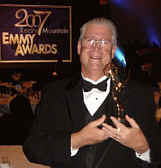
Ed
Sharpe / CouryGraph Productions
Glendale Daily Planet / KKAT-IPTV 2007 EMMY®Award Winner
2007
Rocky Mountain Region Emmy® Award Winner for Breaking News/ Continuing
Coverage
FIRST
IN GLENDALE!
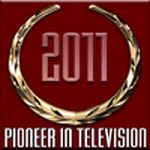
Berkeley Film Festival
Grand Festival
Pioneer In
Television Award
2011
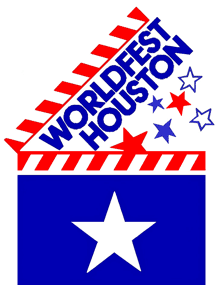
Remi Award Winner
Worldfest Houston
2009 - 2010 -2011
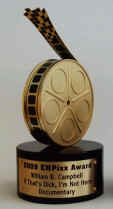
2009 EMPixx Awards

Telly Awards 2006-2007-2008-2009-2010
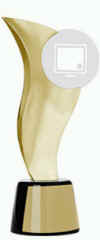
2008 & 2009
Communicator Awards
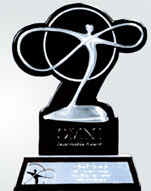
Omni Intermedia Awards
2007-2008-2009

Millennum Awards
2006-2007-2008
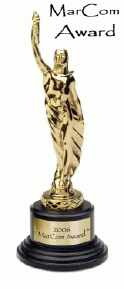
Marcom Award
2007-2008-2009
2010-2011-2012
2013-2014
 
W3 Media Awards
2008/2009
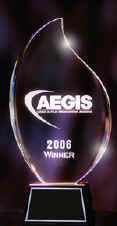
2007/2008/2009 Aegis
Finalists and Winners

Accolade Award Winner
2007-2008-20010
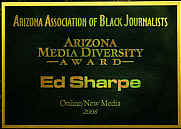
Arizona Assn. of Black Journalists Diversity Winner
2008/2009

Arizona Press Club Winner
Ed Sharpe,
The Glendale Daily Planet:
Use of Online Media
"Cesar E. Chavez 2007"
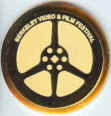
Berekeley Film Festival
2006-2007-2008-
2009-2010-2012
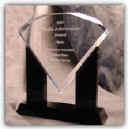
Media Achievement Awards
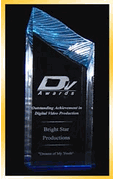
2008/09 Finalists and Winners - DV Awards

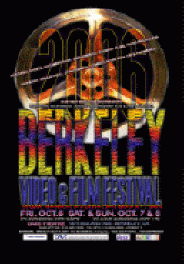
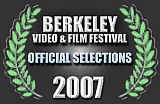
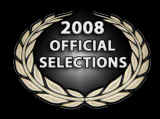
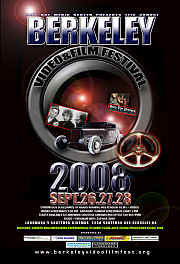

CouryGraph
Productions

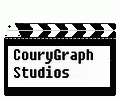

CALIFORNIA
HISTORICAL RADIO SOCIETY
IS PLEASED TO HONOR
EDWARD
A. SHARPE
WITH THE
CHARLES D. 'DOC' HERROLD
AWARD FOR
OUTSTANDING ACHIEVEMENT IN
THE PRESERVATION AND DOCUMENTATION OF
EARLY RADIO.
BY
THE BOARD OF DIRECTORS, 1992:


| |
| BVFF 2011 Review /
Editorial
VAUDEVILLE AT THE MOVIE HOUSE:
THE BERKELEY VIDEO AND FILM FESTIVAL (“BVFF”)
From - The Alsop Review: Foley's Books
By Jack Foley - Friday, October 07, 2011
In 2010 Mel Vapour, co-director with Paul Blake of the city of
Berkeley’s wonderful Berkeley Video and Film Festival, told Examiner
reporter Jason-Louise Graham that “the BVFF blossomed out of my, and
Paul Blake’s, persuasion that the 1979 Panasonic VHS camera was going to
irreversibly and importantly change the course of filmmaking.” Vapour
goes on in the 2011 twentieth-anniversary program, “We founded BVFF in
1991 as a venue for East Bay filmmakers and videographers and in the
ensuing two decades the festival has grown into an international
community, showcasing some of the world’s best cinema. Our goal has
always been to present independent cinema in a mainstream venue—on the
same screen where Hollywood presents its own cinematic offerings.”
The current bill at the Landmark Shattuck Cinema, 2230 Shattuck Avenue,
Berkeley includes Mysteries of Lisbon, The Mill & the Cross;
Circumstance; Crazy, Stupid Love; Detective Dee and the
Mystery of the Phantom Flame; My Afternoons with Marguerite; Mozart’s
Sister; The Black Power Mixtape 1967-1975; The Guard; The
Lion King 3D—and the Berkeley Video Film Festival.
I recently saw, via Netflix, Les Plages d’ Agnčs / The Beaches of
Agnčs, a retrospective film made by prominent Rive Gauche
filmmaker Agnčs Varda, niece of the once famous/notorious artist, Jean
Varda—“Uncle Yanco”—whose Sausalito parties on his remodeled
ferryboat became the stuff of legend.
Watching The Beaches of Agnčs, I was struck by how much the film,
made in 2008, reminded me of James Broughton’s Testament, made
thirty-four years earlier: the presence of the beach, the ocean, the
filmmaker’s attempt to assess an entire career, a life. Varda’s film
was good—fine—but it tended towards the sentimental, it was a little
long, a little repetitious: in short, it was nowhere nearly as good as
Broughton’s little masterpiece. Yet it was certain that a lot more
people would see Varda’s film than would ever see Broughton’s. In the
world in which Broughton made his film, the filmmaker hopes to find, at
best—in Milton’s phrase—“fit audience, though few.” To be sure,
Broughton is—relatively—well known, but he isn’t as well known as
Agnčs Varda. And there is no publicity machine ready to take out a full
page ad to tell you about his work. His are the kinds of films you have to
look for.
The BVFF is a place where such films are sought out and presented with
love and intelligence. Films that have left the “mainstream” behind
and ventured out into the vast ocean in order to explore the boundless
ecstasies of politics, chance and experimentation. Some of us remember the
excitement of Ed Landberg’s Cinema/Guild Theaters in Berkeley—program
notes by Pauline Kael. That was back in the 1960s. The Berkeley Video and
Film Festival is what is happening now.
I attended the BVFF in order to receive as proxy the Grand Festival Award
given to Nic Saunders for his wonderful new film, At Apollinaire’s
Grave—about which I’ll write separately. Nic had given me some
remarks to read. He said, among other things, “I was fortunate enough to
attend the festival in 2009 when a film I made based on a poem by Michael
McClure was screened and of all the festivals I attended with that film I
found Berkeley to be the most supportive and encouraging of new
filmmakers. There was never any doubt I’d submit any future film I was
crazy enough to try and make and I’m honored and thrilled the festival
decided to screen it and reward it so generously.” I read Nic’s
remarks and accidentally substituted “twelfth festival” for
“twentieth festival”: I was soon corrected about that. Mea
culpa, Nic.
I enjoyed all the films I saw, though I wasn’t able to see everything.
Among the highlights were these:
Some in memoriam tributes to various filmmakers including Richard Randell
and Todd Godwin. Godwin’s commercials are marvels of invention, and
their presentation here allowed them to make the transition from guilty
pleasures to art.
The late Allen Willis’s S.F. Beat—a fascinating 1973 glimpse of
Beat writers Allen Ginsberg and Lawrence Ferlinghetti discussing Ann
Charters’ then recent biography of Jack Kerouac while a young, gorgeous
Michael McClure looks on. Ginsberg is charismatic and compelling as he
defends his late friend’s intelligence.
Keenan by Kurt Hemmer and Tom Knoff, a wonderful, joyous,
illuminating portrait of the great photographer—once Michael McClure’s
student—Larry Keenan. The film covers Keenan’s life and career,
including the recent Parkinson’s Disease which has afflicted him but
scarcely slowed him down. Because Keenan was present at so much of what
has happened in this area—he took the famous Michael McClure-Bob
Dylan-Allen Ginsberg photo in which McClure and Ginsberg are looking at
Dylan while Dylan looks straight at the camera—the film is also a
portrait of an entire era. Speaking of one particular photograph of artist
Bruce Conner, McClure remarks, “It wasn’t the car, it wasn’t
Bruce—it was everything that was there in that moment.” Keenan is able
to find exactly the angle, exactly the moment in which whatever is
happening fully announces itself: there it is, caught in an experience
which, Keenan assures us, “is a physical thing with me.” Afterwards, I
congratulated Keenan, who attended, on becoming a movie star.
After an intermission, At Apollinaire’s Grave. Utilizing three
poems written by Allen Ginsberg when he was living at the Beat Hotel in
Paris (“Át Apollinaire's Grave," "Message,"
"Europe! Europe!")Nic Saunders’ film lifted us into another
space entirely: symbolic, richly allusive, compelling. Philip Bulcock’s
performance and reading of the verse were superb—and Aden Cardy-Brown as
Apollinaire’s ghost was a marvelous presence. His image graced the
beautiful cover of the festival’s program.
The amazing Esse di Salome followed At Apollinaire’s Grave.
A seductive woman sits, squirms, smiles, makes the most amazing
sounds—mostly, I think, in Italian. Made by Sonia Bergamasco, the film
is described as “a work for sound theatre. The project stems from a
desire to explore the possible directions that vocal research can
undertake thanks to new technology.” Indeed, it does.
That was followed by David Finkelstein’s equally amazing Marvelous
Discourse. Two men, one of them the filmmaker, talk on endlessly,
hilariously, while a somewhat androgynous “sorceress” moves around,
dances, mugs. The often astonishing dialogue was improvised by the actors
and has the effect of L=A=N=G=U=A=G=E poetry on steroids. BVFF’s program
comments, “The text for the video is…a spectacular example of language
unfolding from an intuitive physicality,” which seems, like the video,
simultaneously puzzling and heroically accurate.
Friday evening ended with Bagels, Borscht and Brotherhood by Marc
N. Weiss, Barbara Kopple and Laurence Storch—video footage of Allen
Ginsberg on the beach at the time of the 1972 Republican Convention in
Miami. Ginsberg couldn’t sing but does anyway, to great effect,
especially when the bathing-suited audience joins in at the end. The
archival preservation and editing of this film was by Ed and Bette
Sharpe—with the inspiration of BVFF’s Mel Vapour, who urged Ed to
select the Ginsberg footage and bring it to life for the BVFF 2011.
On Sunday I saw, first, Andrew Young’s moving Change in the Wind,
a documentary about the unlikely relationship between Gone with the
Wind author Margaret Mitchell (white) and Dr. Benjamin Mays,
African-American president of the all-black Morehouse College in Atlanta.
Mitchell died in 1949—ten years after the release of the triumphant film
version of her novel. Young’s film reveals that she had privately struck
a deal with Mays to anonymously underwrite scholarships to Morehouse
students. The film examines how that might have come to pass—“Margaret
Mitchell was a work in progress”—and provides a wonderful portrait of
Dr. Mays. His poem, “Only a Minute,” is quoted:
I have only just a minute,
Only sixty seconds in it,
Didn’t seek it, didn’t choose it,
But it’s up to me to use it,
Give account if I abuse it,
Answer for it if I lose it,
Just a tiny little minute,
But eternity is in it!
In the evening I saw Edward Frenkel and Reine Graves’ Rites of Love
and Math and Cecil Hirvi’s Machinima: Cinema, Stories and Poetry
from the Virtual World. Rites of Love and Math combines the
ambiance of a Noh play with the sound of Western opera—especially that
of Wagner’s Tristan und Isolde since the film centers on a kind
of liebestod, though it is only the man who dies. The death of the
man—“The Mathematician”—is based on the death of the famous author
Yukio Mishima, who committed ritual suicide by seppuku, and Rites
of Love and Math contains several references to Yukoku (Patriotism,
released in English as The Rite of Love and Death), a film Mishima
wrote, directed and appeared in. Edward Frenkel, a professor of
mathematics at UC Berkeley, talked about the film as an allegory in which
the beautiful woman on whose body The Mathematician tattoos the mysterious
“formula” of love is equivalent to Truth, long sought by the
mathematician. Rites of Love and Math is complex, strange,
paranoiac (there are “bad guys” who are after The Mathematician’s
formula: one thinks of the academic’s need to publish first!),
multiethnic, and a definite assertion that mathematicians have sex lives
too! It attempts to raise cinema to the realm of the ritualistic and
perhaps suggests that mathematical formulae are rituals too.
The last film I saw was an example of “machinima”: “the use of
real-time 3D computer graphics rendering engines to create a cinematic
production. Most often, video games are used to generate the computer
animation. Machinima-based artists, sometimes called machinimists or
machinimators, are often fan laborers, by virtue of their re-use of
copyrighted materials” (Wikipedia). I knew nothing of this art
and found Cecil Hirvi’s explanations and examples fascinating.
I was sorry to have missed Hot Velcro Action, The Last Mambo,
Space Land and Time—Underground Adventures with Ant Farm, and
many others. What I have described here are only a few of the wonders of
the BVFF—and it will be back next year. Hosannas to the 1979 Panasonic
VHS camera.
Mel Vapour insists, rightly, that his vaudeville presentations “are
films that really express the important search for identity in these
contemporary times of unprecedented political social and economic changes
– they represent the voice of many who are silenced and also dare to
criticize the authorities that would otherwise become dictatorships.”
They are also, one might add, not infrequently a lot of fun.
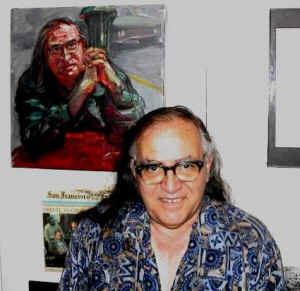
Photo by Koichiro Yamauchi. |
About the Author-
Jack Foley is an innovative, widely-published poet and critic who,
with his wife, Adelle, performs his work frequently in the San
Francisco Bay Area. Since 1988, Foley has hosted a poetry radio
show on Berkeley station KPFA. His column, “Foley’s Books,”
has appeared for many years in the online magazine, The
Alsop Review. On June 5, 2010 Foley received the Lifetime
Achievement Award from the Berkeley Poetry Festival, and June 5,
2010 was proclaimed “Jack Foley Day” in Berkeley. |
|
|
Glendale
AZ's Ed Sharpe Recipient
of
BVFF 2011 Pioneer in Television Award
By
Bette Sharpe - Glendale Daily Planet / This appeared also
at
Southwest Museum of Engineering, Communications and
Computation www.smecc.org
October
2, 2012
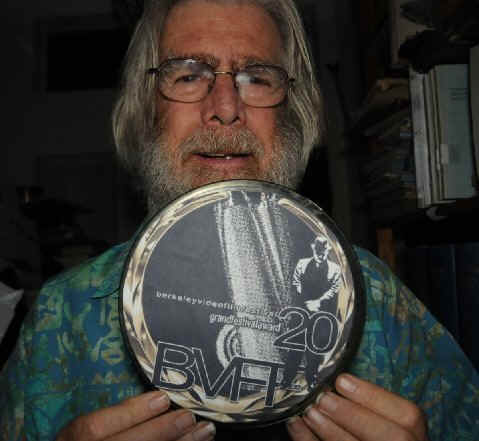
Photo by
Bette Sharpe / CouryGraph Productions
Ed
Sharpe, Media Archivist from the SMECC Media Preservation
Laboratory located at the Southwest Museum of Engineering,
Communications and Computation in Glendale Arizona Holding the
BVFF 2011 Grand Festival Pioneer in Television Award.
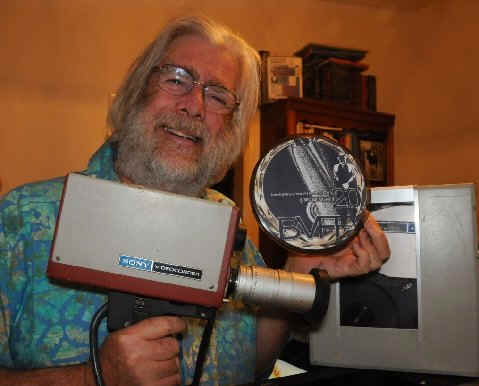
Photo
by Bette Sharpe / CouryGraph Productions
Ed
Sharpe, Media Archivist from the SMECC
Media Preservation Laboratory located at the Southwest Museum
of Engineering, Communications and Computation in Glendale
Arizona Holding the BVFF 2011 Grand Festival Pioneer in
Television Award.
Sharpe
is holding a 1972 Sony Portapak camera AC-3400
with the AV-3400 recorder behind the
award he is holding. These units are identical with
those used in Miami for the
video work in 1972 by Barbara Kopple, Laurence Storch and Marc
N. Weiss at the Republican National Convention.
------------------------------
A
newly designated award this year at the Berkeley Video and
Film Festival is the
Grand Festival Pioneer in Television Award, for distinguished
service in the medium of TV. It was also a special event as it
was the BVFF's 20 year birthday!
From
the BVFF Program - "Marc N. Weiss, Barbara Kopple,
Laurence Storch, and Ed Sharpe received the Grand Festival
Pioneer in Television Award for their early work in reel to
reel video, capturing the Miami Republican Convention in 1972;
with a whimsical short document of Allen Ginsberg, providing
an extemporaneous song poem, Bagels, Borscht, and Brotherhood,
aptly restored and preserved by engineer and broadcast
journalist Ed Sharpe of Glendale, Arizona."
On
the scene in Miami doing the video and production work in 1972
were Barbara Kopple, Laurence Storch and Marc N. Weiss.
The
tapes sat… and sat for close to 40 years. It is not good for
early videotape to sit. "Many time drastic measures
must be taken to recover images and audio from old magnetic
tape," stated Ed Sharpe, Media Archivist from the SMECC
Media Preservation Laboratory located at the Southwest Museum
of Engineering, Communications and Computation in Glendale
Arizona.
Sharpe
was the person responsible for restoring this segment that
screened at the Berkeley Video and Film Festival Friday, Oct
30. 2011. He explains, "it is a delicate process of
chemistry, heat and utilizing a mechanical burnishing process
to force the magnetic material layer to properly adhere
with the existing binder to the Mylar carrier material."
He continues, "It is necessary to use just the right
amount of any of these techniques… too much and it becomes
like a jeweler that blows it when splitting diamonds…
Well… you will wind up with junk if you make the wrong
choices carrying out the processes."
Allen
Ginsberg, considered the most famous Beat Poet, who
transitioned into a major figure in the Flower Power era, was
also very opposed to violence and the Vietnam War. He attended
the 1972 Republican Convention in 1972 along with Ron Kovic,
of “Born of the Fourth of July” movie fame, and his band
of Vietnam Veterans Against War (also known as the 'Last
Patrol') In attendance also were Yuppies
with Rene Davis and
Abbie Hoffman in attendance. Many other groups
including a large group from the Woman's Liberation movement
were present also.
Once
the tape was treated to the point it had physical integrity
then the audio and video was changed into digital format for
long-term preservation and editing. The Ginsberg piece is 12
minutes roughly out of 8 hours of video. To make it
interesting, Ed Sharpe cut in a few scenes of the various
groups protesting, getting tear-gassed and Marc N. Weiss
interviewing and even a brief glimpse of
Richard M. Nixon addressing the Young Republicans.
Bette Sharpe of CouryGraph Productions assisted with Titles
some Art Direction.
"A
new era it was",
exclaims Sharpe, "This was the first election the 18
year olds were allowed to vote so the Republicans organized
and effort to get a large number of the younger people
involved.
Contained
in the eight hours of video are interviews with some of these
younger voters and an ongoing effort will be made to make more
of this material available. Sharpe states "most of
what you see in the interviews and close up video segments,
you will see no where else. Kopple, Storch and Weiss were
highly mobile with their Sony ˝ inch portapak video tape
system and were right on with the questions they asked of the
young people."
In
addition to this material Weiss interviews
Henry Kissinger, Walter Cronkite, and other notables.
Sharpe
states, "
It was Mel Vapour , the Director, Berkeley Video
and Film Festival who suggested we select the
Ginsberg footage and bring it to life for a world premiere
at the 2011 BVFF. to our knowledge this visual record captured
of Ginsberg by Kopple, Storch and Weiss is the only one
in existence. "
So
for now…. You get 12 minutes of Ginsberg… in the future?
A wide array of players and events will play out. In
the future some of this material will be offered on the
museum's website in the video activist section.
-
Mel Vapour ,
Director, Berkeley Video and Film Festival stated
"As the director of BVFF,
I was thrilled to have filmmakers and pioneers of this
caliber be presented to our Berkeley audience, at the Berkeley
Video & Film Festival 2011." He
continues " It was an honour to present
the Grand Festival Award - Pioneers in Television, to these
producers and filmmakers, as they brought a new dimension to
our festival, of poignant documentary footage, of events that
transformed our nation, with the literary and performance
genius of Allen Ginsberg. BVFF salutes these great pioneers in
television".
"It
was amazing to be screened this year with other esteemed
pioneers"
Sharpe exclaimed. Receiving
the Grand Festival Pioneer in Television Award, was
also Andrew
Stern, professor Emeritus, and founder of the UC Berkeley
School of Broadcast Journalism and the
BVFF screened his 1964 classic broadcast video, Brunswick,
Quiet Conflict.
A
newly designated award this year at the Berkeley Video and
Film Festival is the for distinguished service in the medium
of TV.
The
third Grand Festival Pioneer in Television Award recipient was
the notable Chip
Lord, one of the founders of ANT FARM a radical media
consortium from the S.F. bay area in the 1960's and 1970's
famous for their Cadillac Ranch in Texas and the S. F. Media
Burn, receives a Pioneer in Television Award, for his
dedication and production of avante garde media, in the last
half of the 20th century. BVFF will be screening his short
homage to Jean Luc Godard, Un Ville de I'Avenir.
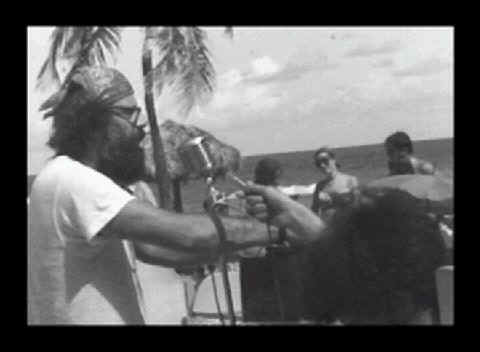
(Photo Courtesy SMECC) Allen Ginsberg Working a harmonium to
accompany his words of peace...
ABOUT
BVFF –
Founded
by award winning independent filmmakers who were involved with
the "independent underground cinema revolution" in
the early and mid-1960's, THE BERKELEY VIDEO + FILM FESTIVAL
was created in 1991 to provide a venue for independent film
and videomakers creating works that challenge and confront our
notions of "Electronic Cinema."
The
EAST BAY MEDIA CENTER, (EMBC), located in Downtown Berkeley's
Arts District, was founded by Mel Vapour and Paul Kealoha
Blake. Out of the EBMC the BVFF was born... This is the 20th
event...Mel reminiscences, "With the support of George
Manupelli (director of Ann Arbor Film Festival), who had met
Vapour at the Ann Arbor film festival in the late 60’s, BVFF
would become a festival of international acclaim showing
unusual, off-beat as well as mainstream documentaries and
short film. More importantly, the BVFF grew quickly in
popularity because of its willingness to promote highly
experimental as well as politically conscious film that would
always include the development of highly advanced technical
refinement and skill."
Every
BVFF as a fantastic event but this year is extra-special due
to the 20 year birthday!
BVFF
screened over 50 remarkable new films and videos by
Independent Producers. Their
films range from documentaries, shorts, student films,
ethnographic, animation, machinima and art films. were Friday
evening and
continued Saturday and Sunday.
This year
the event was held
September 30, October 1 & 2, 2011 at the Landmark Shattuck
Cinemas - 2230 Shattuck Avenue - Downtown Berkeley.
To
see a brief description of the great movies... go to the BVFF
website for a complete program. This link will navigate you to
the program schedule: http://www.berkeleyvideofilmfest.org/BVFF%202011%20Selections.html
Some
1972 Miami history of the event. http://www.miamibeach411.com/news/1972-conventions
|

Berkeley Film Festival
Grand Festival
Pioneer In
Television Award
2011 |
BVFF
2011 LINEUP
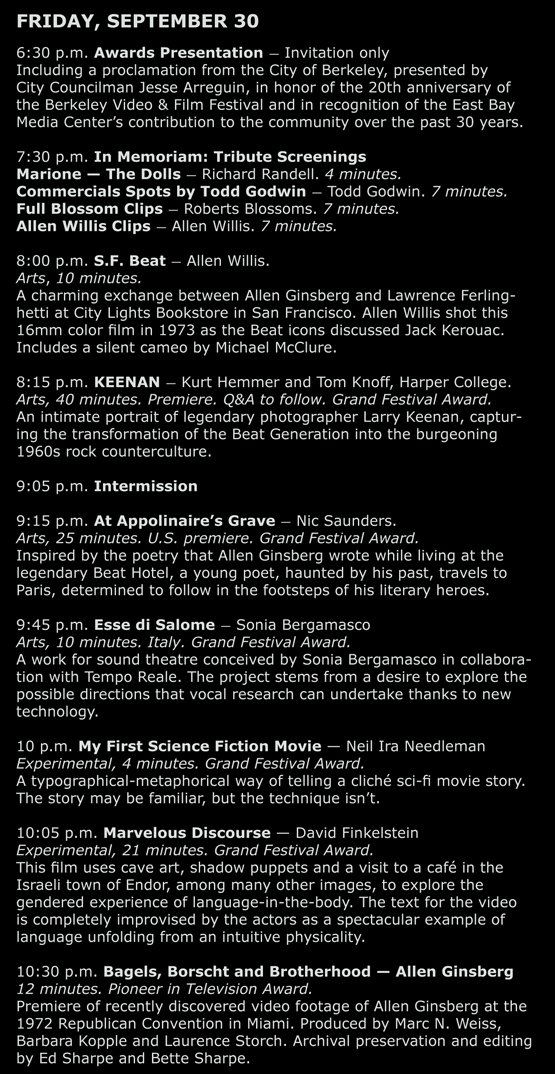
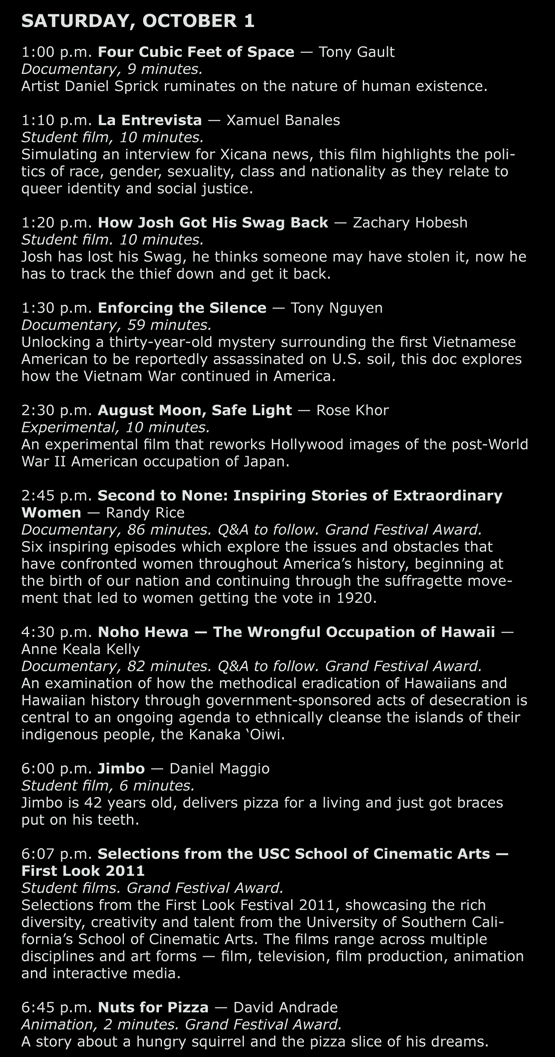
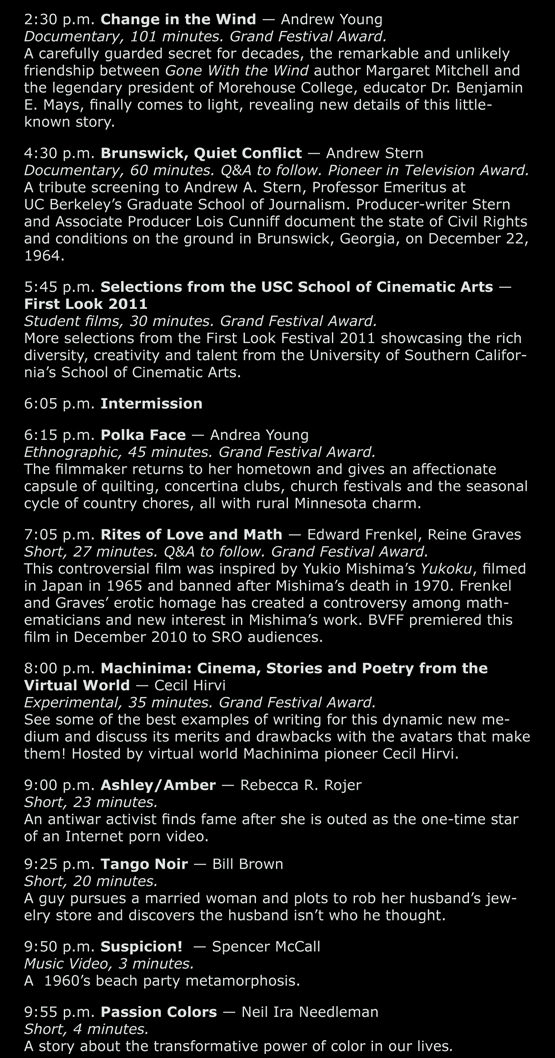
|
THE 20th
BERKELEY VIDEO & FILM FESTIVAL
When: September
30, October 1 & 2, 2011
Where /
Tickets:
Landmark Shattuck Cinemas - 2230 Shattuck Avenue - Downtown Berkeley
Screening over 50 new films and
videos by Independent Producers.
Screenings start Friday evening at
7:30pm,
Saturday and Sunday at 1:00pm through
the evening.
See some of the best documentaries,
shorts, student films, ethnographic,
animation, machinima and art films
from local and international producers.
The link below will navigate you to
the program schedule:
Advance passes available at:
East Bay Media Center -1939
Addison Street . Berkeley, CA 94704 - (510).843.3699
* please forward this email
announcement
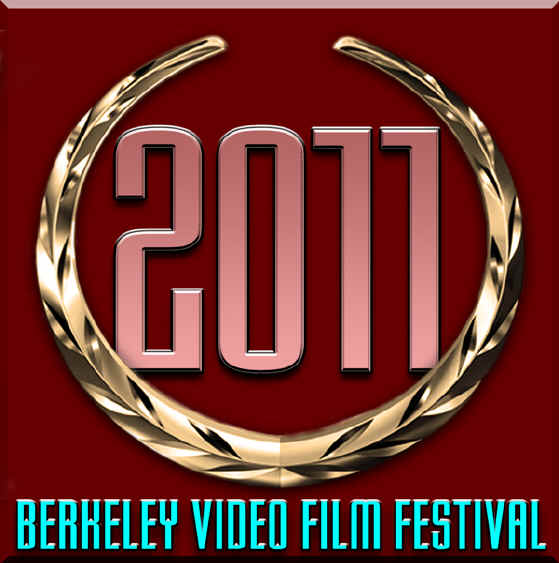
BERKELEY
VIDEO & FILM FESTIVAL
2011 PROGRAM
Friday, September 30
6:30pm - Filmmakers Awards Presentation
- Invitation only
7:30pm - Tribute Screenings - In
Memoriam 2011
'Marione ( The Dolls
)' - Richard Randell - Animation - 4:00
'Commercials Spots of
Todd Godwin' - Todd Godwin - Commercials spots - 7:00
'Full Blossom Clips' –
Roberts Blossoms - 7:00
'Allen Willis Clips'
– Allen Willis - 7:00
8:00pm - 'S.F. Beat'
– Allen Willis - Arts -10:00
8:15pm – 'KEENAN' –
Kurt Hemmer/Tom Knoff/Harper College - Arts - 40:00 – Premiere - Q
&A to follow
9:15pm – 'At Appolinaire’s
Grave' – Nic Saunders - Arts - 25:00 – U.S. Premiere
9:45pm – 'Esse di Salome'
– Sonia Bergamasco - Arts - Italia - 10:00
10:00 – 'My First Science
Fiction Movie' – Neil Ira Needleman - Experimental - 4:00
10:15 – 'Marvelous Discourse'
– David Finkelstein – Experimental - 21:00
10:40 - 'Bagels,
Borscht and Brotherhood-Allen Ginsberg' - Marc N. Weiss,
Barbara Kopple, Laurence Storch, Ed and Bette Sharpe - 1992
Republican Convention - Miami - Premiere of recently discovered video
Saturday,
October 1
1:00pm – 'Four Cubic Feet of
Space' – Tony Gault – Documentary - 8:30
1:30pm - 'Enforcing the Silence'
– Tony Nguyen – Documentary - 59:00
Unlocking a thirty year old mystery surrounding the first Vietnamese
American to be reportedly assassinated on U.S. soil, this doc explores how
the Vietnam War continued in America.
2:30pm – 'August Moon, Safe
Light' – Rose Khor – Experimental – 10:00
2:45pm – 'Second to None:
Inspiring Stories of Extraordinary Women' – Randy Rice –
Documentary 86:00 Q&A to follow
4:30pm – 'Noho Hewa -The
Wrongful Occupation of Hawaii' – Anne Keala Kelly - Documentary
- 82:00
Student Films
6:00pm - 'Jimbo' -
Daniel Maggio – Student Filmmaker - 6:00
6:10pm - Selections from
the USC School of Cinematic Arts - Student Filmmakers - 35:00
6:45pm – 'Nuts for Pizza'
– David Andrade – Animation – 2:00
6:50pm – 'The Last Mambo'
– Rita Hargrave – Trailer – 7:00
7:00pm – 'Dearly Departed'
– Ilo Orleans – Short Feature - 10:15
7:15pm – 'Un Ville de
I’Avenir' – Chip Lord – Experimental - 12:00
7:30pm – 'Space Land and Time
– Underground Adventures with Ant Farm' - Laura Harrison,
Elizabeth Federici - Documentary - 77:30 - Q & A to follow
9:15pm – 'Boys of
Bonneville-Racing on a Ribbon of Salt' – John Greene, Curt
Wallin, Jennifer Jordan Documentary - 81:00
10:40pm – 'Hot Velcro Action'
– Mike Cantor – Experimental – 6:05
Sunday, October
2
1:00pm - East Bay
Media Center's Summer Teen Media Camp -30:00
1:30pm – 'Evil Robot'
– Zack Scott - 6:30
1:45pm - 'Roman Restaurant
Rhythms' – Michael Herzfeld - Ethnographic - 38:00
2:30pm – 'Change in the Wind'
– Andrew Young - 101:00
4:30pm – 'Brunswick, Quiet
Conflict' – Andrew Stern - 60:00 Q & A to follow
5:45pm – Selections
from the USC School of Cinematic Arts - Student Filmmakers -
30:00
6:15pm – 'Polka Face' -
Andrea Young – 45:00
7:05pm – 'Rites of Love and
Math' – Edward Frenkel, Reine Graves - 27:00 –Q & A to
follow
8:00pm –'Machinima: Cinema,
Stories and Poetry from the Virtual World' -Cecil Hirvi - 35:00
See some of the best examples of writing for this dynamic, new medium and
discuss its merits and drawbacks with the avatars that make them! Hosted
by virtual world Machinima pioneer Cecil Hirvi.
9:00pm – 'Ashley/Amber'
– Rebecca R. Rojer - 23:00
|
|
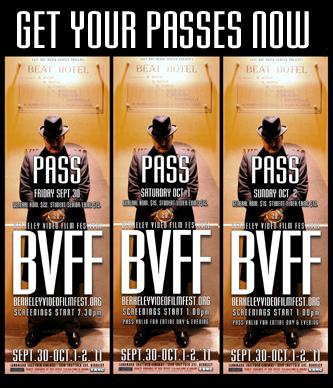
|
Berkeley Video and Film Festival 2011 Bestows
Pioneer in Television Awards
Pressbox
(Press Release) - A newly designated
award this year at the Berkeley Video and Film Festival is the Grand
Festival Pioneer in Television Award, for distinguished service in the
medium of TV.
Berkeley, CA, September 29, 2011 -- A newly designated award this year at
the Berkeley Video and Film Festival is the Grand Festival Pioneer in
Television Award, for distinguished service in the medium of TV.
This year Andrew Stern, professor Emeritus, and founder of the UC Berkeley
School of Broadcast Journalism, is receiving one of the Pioneer in
Television awards and BVFF is screening his 1964 classic broadcast video,
Brunswick, Quiet Conflict.
Marc N. Weiss, Barbara Kopple, Laurence Storch, and Ed Sharpe will receive
the Pioneer in Television Award for their early work in reel to reel
video, capturing the Miami Republican Convention in 1972; with a whimsical
short document of Allen Ginsberg, providing an extemporaneous song poem,
Bagels, Borscht, and Brotherhood, aptly restored and preserved by engineer
and broadcast journalist Ed Sharpe of Glendale, Arizona.
Chip Lord, one of the founders of ANT FARM a radical media consortium from
the S.F. bay area in the 1960's and 1970's famous for their Cadillac Ranch
in Texas and the S. F. Media Burn, receives a Pioneer in Television Award,
for his dedication and production of avante garde media, in the last half
of the 20th century. BVFF will be screening his short homage to Jean Luc
Godard, Un Ville de I'Avenir.
Founded by award winning independent filmmakers who were involved with the
"independent underground cinema revolution" in the early and
mid-1960's, THE BERKELEY VIDEO + FILM FESTIVAL was created in 1991 to
provide a venue for independent film makers and videographers creating
works that challenge and confront our notions of "Electronic
Cinema."
The EAST BAY MEDIA CENTER, (EMBC), located in Downtown Berkeley's Arts
District, was founded by Mel Vapour and Paul Kealoha Blake. Out of the
EBMC the BVFF was born... This is the 20th event...Mel reminiscences,
"With the support of George Manupelli (director of Ann Arbor Film
Festival), who had met Vapour at the Ann Arbor film festival in the late
60’s, BVFF would become a festival of international acclaim showing
unusual, off-beat as well as mainstream documentaries and short film. More
importantly, the BVFF grew quickly in popularity because of its
willingness to promote highly experimental as well as politically
conscious film that would always include the development of highly
advanced technical refinement and skill."
Every BVFF as a fantastic event but this year is extra-special due to the
20 year birthday!
BVFF will be screening over 50 remarkable new films and videos by
Independent Producers. Their films range from documentaries, shorts,
student films, ethnographic, animation, machinima and art films.
Screenings will start Friday evening at 7:30pm, and continue Saturday and
Sunday at 1:00pm through the evening. Held September 30, October 1 &
2, 2011 at the Landmark Shattuck Cinemas - 2230 Shattuck Avenue - Downtown
Berkeley. You may purchase tickets there
Here are a brief description of just a few of the great movies to be
seen... go to the BVFF website for a complete program. This link will
navigate you to the program schedule: http://www.berkeleyvideofilmfest.org/BVFF%202011%20Selections.html
|
| |
|

